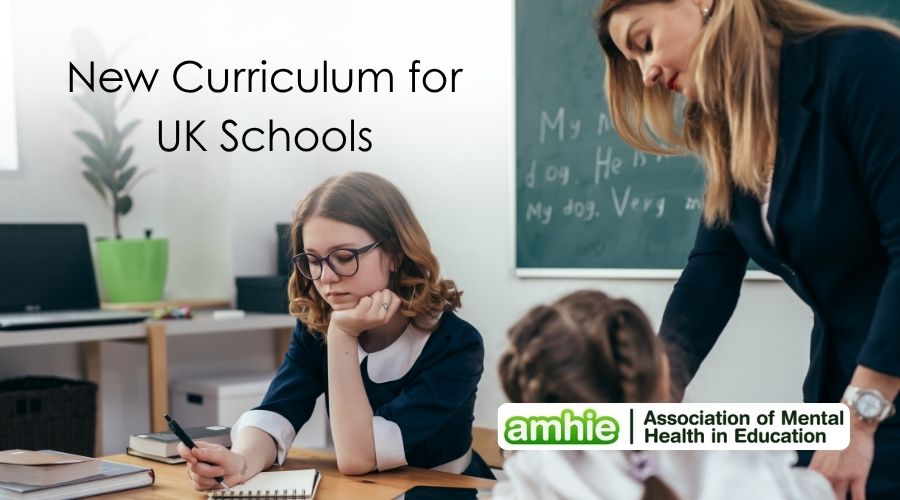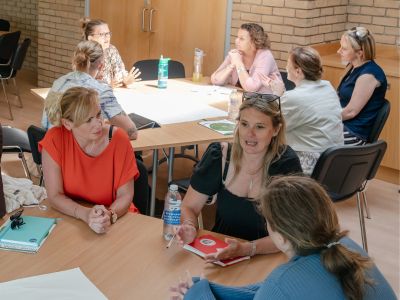
“Government to set out plans to bring the curriculum into the modern day and help young people step into the future.”
In a new press release yesterday the Department for Education (DfE) has unveiled landmark National Curriculum reforms in response to the Professor Becky Francis review, aiming to equip young people to thrive in the modern world of work and life. The core goal is to strengthen a cast-iron grip on the basics of reading, science, and maths, while boosting vital twenty-first-century skills.
Key reforms include making citizenship compulsory in primary school, introducing media literacy (spotting fake news), financial literacy, and climate education early on. A new statutory Year 8 reading test and stronger Year 6 writing assessment will help target support in the ‘lost years’ of early secondary school.
Significantly, the widely criticised EBacc performance measure is being removed and Progress 8 is being reformed. This change is designed to give Arts GCSEs equal status to humanities and languages, encouraging a broader curriculum offer. Furthermore, a new core enrichment entitlement will mandate access for all pupils to activities across five categories, including arts, sport, and life skills/resilience building. Ofsted will monitor the delivery of this entitlement.
Schools should prepare for first teaching in September 2028, following the publication of the final digital and machine-readable curriculum in Spring 2027. The focus is on embedding oracy, digital skills (replacing the Computer Science GCSE), and encouraging triple science offers as standard.
So what impact should we expect to see?
These reforms have a profound and largely positive impact on the current landscape of mental health and wellbeing in education, reinforcing several key trends, policies, and guidance updates.
The most direct connection lies within the new core enrichment entitlement, which mandates access to activities like sport, the arts, nature, and, crucially, life skills to build resilience and opportunity. This aligns perfectly with the ongoing shift towards a Whole School Approach (WSA) to mental health. By making resilience-building activities a statutory component, the DfE is officially embedding a key pillar of wellbeing guidance—holistic development—into the fabric of the curriculum. The Duke of Edinburgh’s Award quote rightly highlights the value of these opportunities in boosting confidence, belonging, and wellbeing.
Furthermore, the statutory introduction of media literacy in primary school is a vital early intervention strategy against online harms. Current policy is heavily focused on addressing the mental health fallout from the digital age, including anxiety, negative body image, and exposure to misinformation. By teaching pupils how to spot fake news and develop critical thinking at an early age, the curriculum directly addresses a primary source of digital distress, offering a preventative approach that complements existing PSHE/RSE guidance and the focus on digital citizenship.
A significant impact will also be felt through the validation of non-core subjects. The removal of the EBacc and the equal status granted to Arts GCSEs directly challenges the notion of a narrow, high-stakes academic pathway, which is often a source of significant performance anxiety and stress for many students. By promoting curriculum breadth, the reforms acknowledge that creativity, self-expression, and varied pathways are protective factors for good mental health. This change should help foster a stronger sense of belonging and attainment across the student body. Similarly, the focus on a new oracy framework supports emotional literacy; strong communication skills are fundamental to self-efficacy, positive peer relationships, and actively mitigating risk factors for social anxiety and isolation.
The overall effect of these changes is to formally integrate wellbeing as a condition for attainment, moving mental health from an external support service into the core pedagogical and structural components of the education system.
Get support to integrate the new curriculum with AMHIE Membership

Don’t navigate big changes alone! Joining AMHIE as a member instantly connects you to essential updates on DfE policy to Reduce Risk and Stress. Eliminate professional isolation by tapping into Expert Support and shared insights from colleagues, gaining the Clarity and Direction needed for best practice. The free access delivers news and evidence-based resources, ensuring you stay ahead of the curve with confidence, supported by your peers.
Ready to connect with a supportive community and stay ahead of policy? Get immediate access to guidance and peer support—sign up for your AMHIE membership today!

